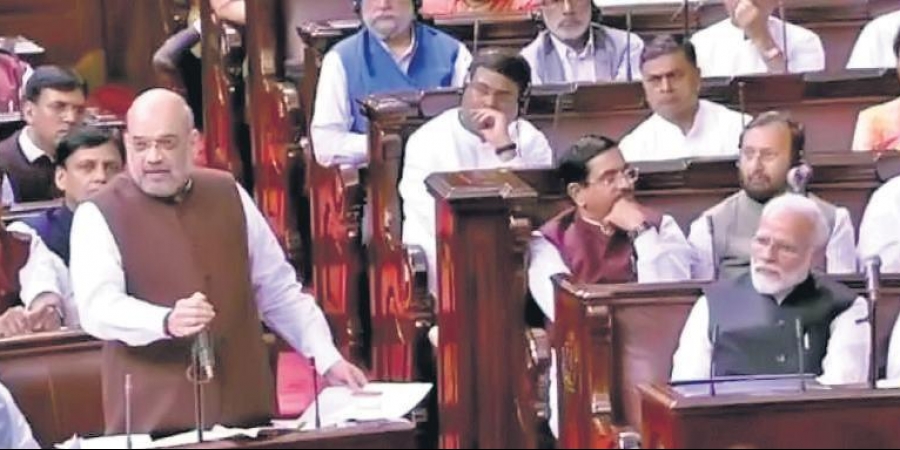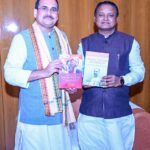Unclear Why Some Political Parties Oppose CAA
- By : Anirban Ganguly
- Category : Articles

It also was unclear on what basis or what drove parties such as the BSP to oppose the passage of the Bill.
While giving his unassailable, pointed, inspiring and historic replies in the both Houses of Parliament, Union Home Minister Amit Shah asked a number of questions which the Congress and the communist parties never dared to ask in these seven decades of independent India. Where have the minorities of these three neighbouring countries—Pakistan, Bangladesh, Afghanistan—gone over the years? There has been a distinct depletion of their numbers in these countries, where have they gone? asked Amit Shah. If our brothers and sisters get afflicted, face persecution and attacks in these countries, should we just look the other way, where else will they go except to come to India, should we drive them away then?” he asked.
On the definition of secularism, Shah asked how, “just because this Bill does not speak of Muslim, you dub it is as anti-secular, but you do not see that it includes all minorities in the countries mentioned, why don’t you see that it speaks of Christians, Sikhs, Jains, Parsis, Buddhists as well?” He also pointed out, how this Bill was meant to confer citizenship and not to take it away.
He clearly stated a number of times on the floor of the House that Muslims who are citizens of India had nothing to be apprehensive of and should not fall for false propaganda spread by a section of the Opposition. The Citizenship (Amendment) Act (CAA), Amit Shah time and again pointed out, does not take citizenship away, it is meant to “give citizenship to religiously persecuted refugees, it is not to take away citizenship of any Indian.”
It also was unclear on what basis or what drove parties such as the BSP to oppose the passage of the Bill. Had the BSP leadership, which had supported the abrogation of Article 370 on the ground that it would provide for reservation to the marginalised sections in the region, read up the history of India’s partition in some detail, especially how partition had affected the Dalits of East Pakistan, they would have perhaps had a rethink. Most of the persecuted minorities of these countries are Dalits, the persecution of the Namasudras—the valiant Matuas in East Pakistan and later Bangladesh—is one of the most disturbing episodes of our recent history. Most of those who had to leave their homes in East Pakistan and Bangladesh were Dalits.
The present BSP is certainly not the one which late Kanshiram had founded. The current BSP leadership is allowing itself to be held hostage to the politics of appeasement and vote-bank. A large number of Dalit Hindu refugees are loudly asking this question, how is it that the BSP leadership did not stand by them? How is it that a political entity like the BSP and other parties, which have built up an entire political career professing to work for the empowerment of the Dalits, oppose the CAA?
A sample for those self-professed Dalit, communist and Congress leaders who have opposed CAA. In their seminal study, ‘Religion and Politics in Bangladesh and West Bengal: a study of Communal Relations’, Sukumar Biswas and Hiroshi Sato, for example, document how in January 1950 pogrom was unleashed on tribals (Santals) by East Pakistan police, “Village after village was indiscriminately burnt down, peasants were beaten and tortured mercilessly.
They created a reign of terror by free looting, and raping of the Santal women went at will. 24 Santal peasants succumbed to death due to police torture… Innumerable Santals were killed in Nawabganj and Rajshahi Jails… The pervasive and multi-directional torturing compelled several Santal peasants to emigrate to West Bengal…” These Santals were active participants in the historic Tebhaga movement led by communist party leaders in East Pakistan! Yet, both Mayawati and Sitaram Yechury have opposed the CAA, they do not want STs and SCs, among others, who came away to India, to be conferred citizenship!

















